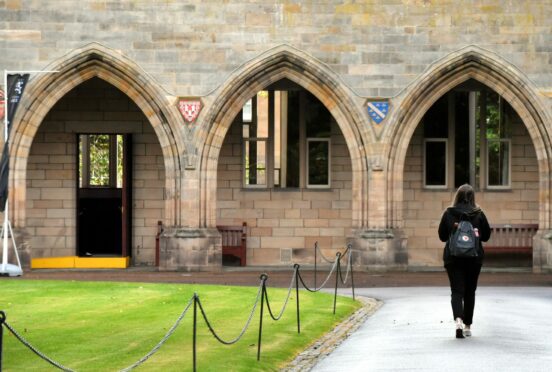Students in Aberdeen are organising a boycott of nightclubs and bars in order to raise awareness of drink spiking.
Reports of people being spiked via injections surfacing in Edinburgh and Dundee have prompted a huge campaign on social media.
Groups have organised in almost every city across the UK under the ‘girlsnightin’ name.
They plan to boycott night-time venues in order to prompt a proactive response towards drink spiking.
A petition has been launched hoping to make it a legal requirement for nightclubs to thoroughly search guests upon entry.
Calls are being made for the UK Government to crack down on weapons or illicit substances being brought into venues.
Here in Aberdeen, the organised boycott will take place on October 28 – groups in 12 other cities will also be staying at home or organising events the same day.
Dangerous and unacceptable
Drinkaware defines drink spiking as: “A person’s drink can be spiked to make them more vulnerable for a variety of reasons, including theft, sexual assault or as an attempted joke.”
With no official statistics when it comes to drink spiking it is difficult to understand the true extent of the crime.
Often it goes unreported because people don’t remember details of the night or they feel embarrassed.
Organisers at girlsnightin_aberdeen said: “Spiking has being going on for years, and bars and clubs have been doing very little to try and prevent this.
“For years we have been told solutions to stop ourselves from getting spiked, ‘buy a drink cover, don’t leave your drink, stay in groups’ all of which is our responsibility.
“What about the clubs and bars responsibility to keep people safe.
“We can cover our drinks but now how do we stop ourselves from being injected.
“As we find solutions to keep ourselves safe, people are finding alternatives to try and take advantage of vulnerable people and we have to take a stand.
“We are doing this because we need a reaction from the places where we want to enjoy ourselves.
“We want more CCTV around alcohol selling points, we want staff trained up to date with first aid, we want thorough body and bag checks before entry to these places, and all because we want to be safe.”
‘Everyone seems to know of a spiking story’
Aberdeen University student, Abbie Malone, who also runs reclaimthesestreetsaberdeen said: “I have had friends who have been spiked, I myself was spiked last year, everyone seems to know of a spiking story.
“It is dangerous and can even lead to people dying – when I first read about people being spiked by injections I was furious.
“It is a serious problem and more needs to be done to stamp it out.
“This week I have had so many people reach out with their own stories and it just shows how real the problem is.”
Believing that the start to positive change lies with coming together and supporting the movement, Miss Malone will be joining the next week’s boycott.
She added: “I have spoken to a number of the clubs in the city and their responses have been supportive, it can be difficult to communicate stuff like this but it is good to see people on the same page.”
Who do you speak to if you think you have been spiked?
Drinkware has set out a list of things you can do if you think a friend has been spiked:
- Tell a bar manager, bouncer or member of staff
- Stay with them and keep talking to them
- Call an ambulance if their condition deteriorates
- Don’t let them go home on their own
- Don’t let them leave the venue with someone you don’t know or trust
- If possible, try and prevent them drinking more alcohol as this could lead to more serious problems
There are also a number of groups that you can contact for advice and support including, police, local GP surgery or hospital.
If you don’t feel able to do that right away you can call the Rape and Sexual Abuse Support Centre on 0808 802 9999 (12–2.30pm and 7-9.30pm every day).
Victim Support is another independent charity for victims and witnesses of crime that offers free, confidential help to anyone who’s been affected by sexual harassment.
Miss Malone added: “I know that a lot of girls and groups will be more than happy to help support anyone who needs it, me included – if anyone needs advice or just an ear to listen they can contact me.”
Support for students

Nick Edwards, head of student support at Aberdeen University, said: “We are aware of reports on social media of spiking and we have advised students of the dangers of spiking and what they should do if they believe that they have been spiked.
“We are working closely with our colleagues at AUSA (Aberdeen University Students’ Association), in consultation with the police, on a campaign to raise awareness among our student community.
“We encourage anyone who has been impacted by this to contact Student Support Services for confidential support and advice.”
A spokesman for RGU said: “While we have received no reports of any students being spiked, there should be no room for this behaviour in our society. People should have the opportunity to enjoy their free time and feel safe.
“We would encourage anyone who has concerns to report these directly to Police Scotland or get in touch with RGU’s student support services.
“The University and RGU Union have a wide range of support available and will be signposting our students to various resources to ensure they feel safe during their time at university.”
